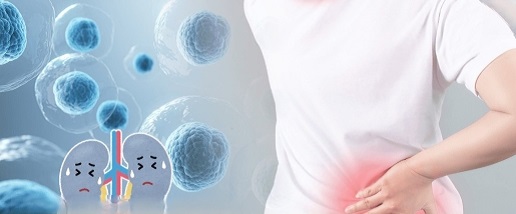Taiwan has the highest incidence rate of upper urinary tract urothelial carcinoma (UTUC) globally. While the disease was predominantly seen in men over 70 in the past, recent years have seen a rise in female patients. Dr. Chang Yen-Hua, a specialist in urologic oncology at Taipei Veterans General Hospital, explains that UTUC primarily refers to tumors in the renal pelvis, ureter, and upper bladder epithelium. Compared to bladder cancer, UTUC tumors are more prone to penetrating tissue walls and invading other organs, making postoperative recurrence a significant concern.
Statistics indicate that renal pelvis and ureter cancer account for over 30% of cases in Taiwan, significantly higher than the global average of 10%. Many patients are diagnosed at advanced stages, with 40% progressing to late-stage cancer. Common carcinogenic factors include smoking, heavy metal pollution, and aristolochic acid from certain traditional Chinese medicines, the latter being a major contributor to kidney function deterioration. 80% of Painless Hematuria Cases Could Be Urothelial Cancer (Photo / Courtesy of Heho Health)
80% of Painless Hematuria Cases Could Be Urothelial Cancer (Photo / Courtesy of Heho Health)
Dr. Chang shared two cases: a 69-year-old female patient sought medical attention for painless hematuria lasting two months, which revealed a tumor blocking her left kidney. She was diagnosed with stage III UTUC and required the removal of her left kidney and ureter. Another case involved a 79-year-old woman with two months of right back pain. An ultrasound revealed hydronephrosis of the right kidney and ureter. After tumor removal surgery, both patients underwent immunotherapy, achieving stable postoperative conditions. Dr. Chang Yen-Hua, Director of the Urology Department at Taipei Veterans General Hospital (Photo / Courtesy of Heho Health)
Dr. Chang Yen-Hua, Director of the Urology Department at Taipei Veterans General Hospital (Photo / Courtesy of Heho Health)
Immunotherapy effectively reduces the risk of UTUC recurrence. Initially used for late-stage cancer, it is now increasingly applied in early treatment, extending disease-free survival to 21 months. Currently, immunotherapy has been approved as an adjuvant treatment for UTUC but remains costly, with monthly medication expenses ranging from NT$100,000 to NT$200,000, and treatment lasting approximately one year. Doctors advise seeking medical care promptly if experiencing symptoms like back pain or hematuria to avoid delaying diagnosis.
This article is authorized for use by Heho Health







